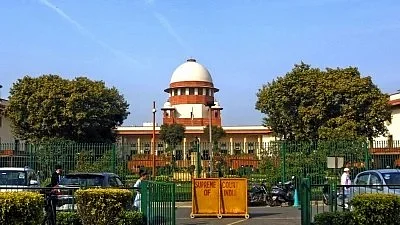SC bars police from summoning lawyers without SP approval, quashes ED summons
Bench reinforces lawyer–client confidentiality, rules IOs need senior's approval before issuing summons

In a landmark judgment reinforcing the sanctity of lawyer–client privilege, the Supreme Court on Friday barred investigating officers from directly summoning lawyers in criminal probes without prior approval from a superior officer of at least the rank of superintendent of police (SP). The court also set aside summons issued by the Enforcement Directorate (ED) against a lawyer, calling them “illegal and coercive”.
A Bench of Chief Justice of India B.R. Gavai and Justice K. Vinod Chandran delivered the ruling while deciding a suo motu case titled 'In Re: Summoning Advocates who give legal opinion or represent parties during investigation of cases and related issues'.
The 78-page judgment laid down a framework to curb arbitrary questioning of lawyers by investigative agencies and to ensure that professional communications between advocates and their clients remain protected under law.
“The investigating agency, prosecuting agency or police cannot directly summon a lawyer appearing in a case to elicit details of that case, unless the investigating officer (IO) has specific knowledge of something that falls within the statutory exceptions,” the court said.
Justice Chandran, who authored the judgment, clarified that in such cases the reason for invoking the exception must be explicitly stated in the summons and the lawyer concerned would have the right to challenge it under the Bharatiya Nagarik Suraksha Sanhita (BNSS).
The Bench directed that “any such summons issued against a lawyer by an IO has to be with the approval and satisfaction of a superior officer not below the rank of Superintendent of Police, which satisfaction must be recorded in writing and must specify the facts leading to the exception under Section 132 of the Bharatiya Sakshya Adhiniyam (BSA) for which the summons is issued.”
Referring to Section 132 of the BSA, the court emphasised that the privilege belongs to the client, and it obliges the advocate not to disclose any communication made in confidence during the course of professional engagement.
Compelling lawyers to divulge privileged communications without statutory backing, the court said, would “fundamentally impair the right to legal representation and fair trial”.
“Despite our conviction to the contrary on the need for guidelines and a committee of professionals, we cannot but express our anguish at investigating agencies summoning advocates who appear in cases, in furtherance of the investigation of the same case,” the Bench observed while quashing the summons issued against a lawyer in Gujarat.
The top court stopped short of issuing exhaustive guidelines but passed binding directions to regulate the summoning of advocates. It reiterated that “Section 132 of the BSA is a privilege conferred on the client, obliging an advocate not to disclose any professional communication made in confidence, which privilege, in the absence of the client, can be invoked by the advocate on the client’s behalf.”
The court said any summons issued to lawyers would be open to judicial review by either the advocate or the client under the BNSS.
It clarified that the privilege applies to lawyers engaged in litigation as well as those handling non-litigious or pre-litigation matters. However, “production of documents in the possession of an advocate or the client will not be covered under the privilege conferred by Section 132, either in a civil case or a criminal case,” the judgment said.
If a court or investigating officer directs production of a document in a criminal case, the lawyer must submit it before the court, which will then decide on any objections and the admissibility of the material after hearing both the advocate and the client.
Protection for digital devices
On digital devices, the court ruled that they too can only be produced before the jurisdictional court, not directly to the investigating agency.
“Upon such production, the court shall issue notice to the party whose details are sought to be discovered from the device and hear both the party and the advocate on objections regarding its production, discovery, and admissibility,” it said.
If objections are overruled, the device may be accessed in the presence of the parties and their lawyers, with the assistance of digital experts. “While examining the device, care shall be taken by the court not to impair confidentiality regarding other clients of the advocate. The discovery shall be confined strictly to what is sought by the investigating officer and found to be admissible,” the Bench directed.
The court also clarified that in-house legal advisors employed by firms do not fall under the category of practising advocates for the purposes of Section 132.
“In-house counsel will not be entitled to the privilege under Section 132 since they are not advocates practising in courts as spoken of in the BSA,” the judgment said. However, such lawyers would still enjoy protection under Section 134 concerning communications made to a legal advisor by their employer.
The case arose from a notice issued to a Gujarat-based lawyer under Section 179 of the BNSS, summoning him to reveal “true details of the facts and circumstances” of a matter in which he represented an accused person. The Gujarat High Court had refused to intervene, prompting the matter to be referred to a larger Bench owing to its “grave public importance”.
Setting aside the high court order, the Supreme Court held that the summons were “illegal and in violation of Section 132”, and reaffirmed that the privilege between lawyer and client is an essential safeguard of the right to a fair trial.
With PTI inputs
Follow us on: Facebook, Twitter, Google News, Instagram
Join our official telegram channel (@nationalherald) and stay updated with the latest headlines
